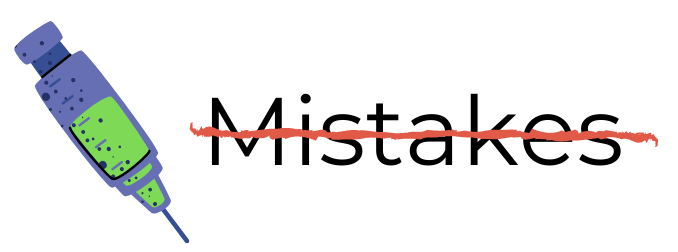Good morning! It has been 366 days since the first documented human case of COVID-19. I guess that’s a year since this appears to have first emerged.
We’re going to be talking about the Moderna vaccine today. I understand that today may also be a big news day for the virus, since the New York Times’s Apoorva Mandavilli has been hinting that she has a major story coming as well, but I’ll have to cover that in tomorrow’s issue.
As usual, bolded terms are linked to the running newsletter glossary.
Keep the newsletter growing by sharing it! I love talking about science and explaining important concepts in human health, but I rely on all of you to grow the audience for this:
Now, let’s talk COVID.
Moderna RNA vaccine shows almost 95% efficacy
The Moderna RNA vaccine was demonstrated to be almost 95% effective in an interim analysis that was announced yesterday. This is more science-by-press release, and we don’t have a lot of details at this time. But, we’re gonna talk about it in an in-depth, so hang on until that section.
New restrictions put in place by various US states
A lot of US states are putting restrictions back in place in response to spiking cases of COVID-19. CIDRAP has some mentioned here: cidrap.umn.edu/news-perspective/2020/11/states-initiating-new-measures-slow-covid-spread
I’m not sure their coverage is comprehensive, so please check the situation for your own state.
Elon Musk shoots his mouth off about testing
This is a minor story but I want to use it to make a major point. Elon Musk made the following statement on Twitter:

Nothing bogus is going on, except perhaps in Mr. Musk’s own mind. He reports using a rapid antigen test for SARS-CoV-2. These rapid antigen tests rely on the presence of high doses of virus in the samples that are taken; they are not very sensitive, and the amount of virus present does fluctuate during infection. There is also some inter-sample variability. The false negative rate is quite high. I would anticipate that most patients would intermittently test positive by this methodology.
PCR testing, on the other hand, is substantially more sensitive. False negatives do still occur, but not so frequently as with antigen testing.
The point that I came here to make, though, is that while Mr. Musk is likely quite intelligent, he is an expert on business operations. He is not a virologist nor is he actually trained in any particular scientific discipline. By being quite intelligent he has become informed about a variety of areas, including space exploration and vehicle technologies. It is apparent that one area he has not become informed about diagnostic testing methodologies used in medicine, something that I happen to be an expert on.
I say this because there are a lot of people with respect for Mr. Musk based on his achievements in business and engineering. I happen to have quite a bit of respect for his achievements in these fields, and I also worked with his team during the early surge in NYC to help get medical supplies to area hospitals. He’s not someone I criticize lightly. I do have to be critical, though—being an expert in one area, even being a celebrity known for particular intelligence, is not a substitute for expertise in another area.
I am no expert on space exploration, and I learned a relatively long time ago that I shouldn’t comment on it unless I’m pretty sure of what I’m talking about. I also learned that it’s important to trust people who know what they’re talking about over people who are very popular.
When someone like Elon Musk runs his mouth on a topic like this, he undermines public confidence and damages the efforts of scientific communications, which makes me angry. He also makes it harder to get the right messages out. So, although I know I am talking here to people who have already done so, I would ask everyone to listen to people who are actual experts in the things they are talking about, and help to amplify voices of that type whenever you can.
This applies beyond virology as well.
What am I doing to cope with the pandemic? This:
Watching Star Trek: Discovery
There’s a view in the Star Trek fan community that no Star Trek show except the original series is any good for the first two seasons. This doesn’t seem to be so true anymore, but I think of it now that the third season of Star Trek: Discovery has come out and is shaping up to be great.
I think when you’re writing a show about the future, it can be very challenging to try and capture the forward-looking feelings of the audience. This has been a dark time for the world, and it would be possible for someone to think that a realistic, difficult future is what people expect to see. Discovery appears to have gone a different direction; it is instead focusing on what it is like to rebuild after a disaster, and what it means to hold on to ideals even in an uphill battle. These are messages that I’m finding very reassuring during this time, and I recommend the third season so far with little reservation.
Vaccine 2: Moderna’s turn
It sure is nice to be talking about a second effective vaccine just a week after the first results appeared. Unlike the Pfizer vaccine, where the results came more or less when they were expected to arrive, the Moderna results are actually coming in a bit early. The original expectation was that we’d have these results around Thanksgiving, in fact.
That said, the results are about as good as the Pfizer vaccine results, but they come with the same caveats. Moderna has announced its results in a press release, and hasn’t provided a lot of details. We do not at this time know the full nature of the results nor of the product safety profile. There are additional pieces of data that we’d like to see information on. The questions that I have are quite similar to those that I have about the Pfizer vaccine; in fact, the Moderna vaccine is extremely similar to the Pfizer one in its design and, so far, in its results.
Again, the biggest question is whether this vaccine prevents transmission of the virus between people, or whether it just lessens the severity of disease. It’s really important to slow transmission. If the vaccine can control that, then it could help us to get out of our homes and maybe even take off our masks sometime before 2022.
If not, things are going to be a little more complicated.
Another thing that we’re going to need to keep an eye on is anything that gives us a sense of the duration of protection. Like the Pfizer results, these are an interim analysis. They come from the earliest possible readout for the Moderna trial, at a time when vaccine-induced immunity was probably high. We should expect, like with the Pfizer vaccine, that future analyses will show a drop in efficacy. What’s reassuring is that it was so fantastically high in this early analyses that it’ll probably still be great at that time, if a bit lower.
Duration will be important because it’ll let us know whether we will need to regularly get re-vaccinated, or whether this will be a lifelong vaccination.
The next item that I think we need to think about with this vaccine, and this one’s a positive, is that it is really reassuring regarding the prospects of other vaccine candidates. So far we have two candidates with eye-popping results. Remember that I—and just about everyone else—was setting their sights at a 50% to 75% effective vaccine. These early numbers are way beyond expectations, and they suggest that the virus is really amenable to vaccine-induced immunity.
One good early result inspires some confidence, but there are always doubts. Two results, particularly with vaccines that have very similar designs? That inspires, for me, three times as much confidence. I’m now very hopeful that the other vaccines that are in testing will work. I anticipate that we are going to have an embarrassment of choices when it comes to vaccination options.
Given that, something I want to call out is that you really shouldn’t be comparing these vaccines to each other. This is a fact that is well known in medicine, but isn’t as well-appreciated outside of it: you can’t cross-compare the results of clinical trials reliably. Clinical trials are carefully calibrated for internal consistency. They use defined patient populations and have a huge number of variables within those patient populations. Different study sites, different investigators, and different protocols will also add variations. So you cannot simply say “Pfizer had 90% efficacy and Moderna had 94.5%, so that means Moderna is 4.5% better.” There is no head-to-head trial of these two products. The trials were not designed to compare them independently. What we know is that each of them was much more effective than placebo at preventing COVID-19 in enrolled patients. We do not know if one is better than the other, and we probably won’t know any time soon.
This is going to be even more important as additional vaccines begin to produce results. The AstraZeneca/ChAdOx vaccine will likely be the next to report. We will be looking at a different trial, and its results may be very different. We shouldn’t necessarily read into this that it’s a worse or better vaccine than either of these candidates if the results only show an 80% efficacy, for example. You just can’t make comparisons like that.
Where these vaccines will compete with each other is more likely to be on concepts like safety, ease of dosing, and logistical issues. For example, the Moderna vaccine ships at a warmer temperature than the Pfizer vaccine. This may make it more practical for distribution to small medical practices that don’t have deep freezers, and so it may ultimately be more popular than the Pfizer vaccine.
The safety results are still forthcoming, so we’ll need to see if there are issues with the safety profile of one that makes the other a better option in certain patients. Sometimes that happens; for example, sometimes there’s one brand of a vaccine that triggers latex allergies, and another brand that doesn’t. That makes a huge difference, if you happen to have a latex allergy.
When it comes down to it, we currently don’t know how things will work out for these two vaccines, but I do feel confident that we will have at least two vaccines on the market soon. Two are better than one, I’m told, and I would classify this as resoundingly good news.
You might have some vaccine questions! Send them in.
Join the conversation, and what you say will impact what I talk about in the next issue.
Also, let me know any other thoughts you might have about the newsletter. I’d like to make sure you’re getting what you want out of this.
This newsletter will contain mistakes. When you find them, tell me about them so that I can fix them. I would rather this newsletter be correct than protect my ego.
Though I can’t correct the emailed version after it has been sent, I do update the online post of the newsletter every time a mistake is brought to my attention.
No corrections since last issue.
See you all next time.
Always,
JS








Thanks for the excellent analysis, as always! Here's a question for you: my husband has been skeptical of the safety of these two vaccines because they are, we think anyway, mRNA vaccines. We understand this to be an entirely new kind of vaccine. He's concerned that the safety profile may be less well understood than others. I'd love to learn whether this is a valid concern or not. Thanks!